|
|
| |
|
| |

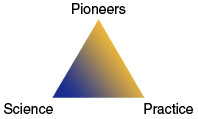
SpringerBriefs on
Pioneers in Science and Practice (PSP)
Edited by
Hans Günter Brauch,
AFES-PRESS, chairman
Free University of Berlin (Ret.)
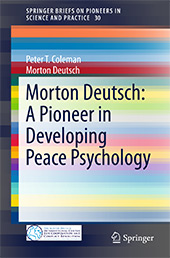
On the author
|
Morton Deutsch and Peter T. Coleman: Morton Deutsch: A Pioneer in Developing Peace Psychology - Presented by Peter T. Coleman Springer Briefs on Pioneers in Science and Practice No. 30 (Cham – Heidelberg – New York – Dordrecht – London: Springer-Verlag, 2015).
ISBN (Print): 978-3-319-15439-8
ISBN (Online/eBook): 978-3-319-15440-4
DOI: 10.1007/978-3-319-15440-4-
Order this book on the Springer Website |
| |
Morton Deutsch has passed away on 13 March 2017 at the age of 97. An obituary in the New York Times of 21 March 2017 is here.
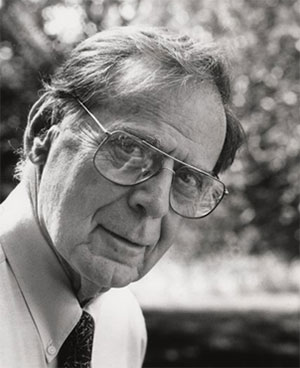
© Morton Deutsch Credit Teachers College Archives |
| |
|
| |
|
|
Important Links on Morton Deutsch
Selected Videos with Morton Deutsch
Books by Morton Deutsch |
|
| |
|
- As a pioneer in developing Peace Psychology, Morton Deutsch has influenced generations of psychologists, educators, peace researchers and activists
- On the occasion of his 95th birthday this book presents his scientific bibliography, his major publications on peace psychology and three other key texts
- Deutsch served as the president of major scientific societies and has received many prestigious scientific awards
Celebrating the 95th birthday of Morton Deutsch this book presents ten major texts of this much honored social psychologist on war and peace. After serving in the U.S. Air Force during World War II and being awarded two Distinguished Flying Cross medals, he worked as a psychologist for a more peaceful world. Influenced by Kurt Lewin, who believed that nothing was as practical as a good theory, Deutsch did theoretical work on such issues as cooperation-competition, conflict resolution, and social justice relating to war and peace issues. As President of the Society for the Study of Peace, Conflict, and Violence, the Society for the Psychological Study of Social Issues, and the International Society of Political Psychology, he helped to foster social science efforts to make for a more peaceful world. This second volume presents 10 major texts by Deutsch as a leading social science activist on issues of war and peace – writing papers, making speeches, participating in demonstrations.
Contents:
Introduction by Morton Deutsch – The Prevention of World War III: A Psychological Perspective – A Psychological Basis for Peace – Undoing Nuclear Insanity – Negotiating the Non-Negotiable -- On Producing Change an Adversary – Educating for a Peaceful World – Psychological Components of Sustainable Peace: An Introduction (with Peter T. Coleman) – William James: The First Peace Psychologist – Developing a Global Community: A Social Psychological Perspective (with Eric C. Marcus and Sarah Brazaitis) – Deutsch’s Ten Commandments Regarding Conflict Resolution
Content Level » Research
Keywords » Competition - Conflict - Cooperation - Justice - Peace
Related subjects » History of Science - International, Foreign and Comparative Law |
| |
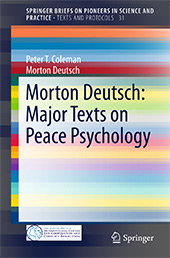
On the author |
Morton Deutsch and Peter T. Coleman: Morton Deutsch: Major Texts on Peace Psychology. SpringerBriefs on Pioneers in Science and Practice No. 31. Texts and Protocols No. 15 (Cham – Heidelberg – New York – Dordrecht – London: Springer).
ISBN (Print): 978-3-319-15442-8
ISBN (Online/eBook): 978-3-319-15443-5
DOI: 10.1007/978-3-319-15443-5
Order this book on the Springer Website
|
| |
|
|
- As a pioneer in developing Peace Psychology, Morton Deutsch has influenced generations of psychologists, educators, peace researchers and activists
- On the occasion of his 95th birthday this book presents his scientific bibliography, his major publications on peace psychology and three other key texts
- Deutsch served as the president of major scientific societies and has received many prestigious scientific awards
Commemorating Morton Deutsch’s 95th birthday, this book presents ten major texts by this highly respected social psychologist on war and peace. This second volume presents Deutsch in his role as a leading social science activist on issues of war and peace – writing papers, making speeches and participating in demonstrations. After serving in the U.S. Air Force during World War II and being awarded two Distinguished Flying Cross medals, as a psychologist he was determined to work for a more peaceful world. Influenced by Kurt Lewin, who believed that nothing was as practical as a good theory, Deutsch pursued theoretical work on such issues as cooperation-competition, conflict resolution and social justice with regard to issues of war and peace. As President of the Society for the Study of Peace, Conflict and Violence, the Society for the Psychological Study of Social Issues and the International Society of Political Psychology, he helped to foster social science efforts to make for a more peaceful world.
Content Level » Research
Keywords » Competition - Conflict - Cooperation - Justice - Peace
Related subjects » History of Science - International, Foreign and Comparative Law
Table of contents
Introduction.- The Prevention of World War III: A Psychological Perspective.- A Psychological Basis for Peace.- Undoing Nuclear Insanity.- Negotiating the Non-Negotiable.- On Producing Change an Adversary.- Educating for a Peaceful World.- Psychological Components of Sustainable Peace: An Introduction (with Peter T. Coleman).- William James: The First Peace Psychologist.- Developing a Global Community: A Social Psychological Perspective.- Deutsch’s Ten Commandments Regarding Conflict Resolution. |
| |
|

|
Morton Deutsch (USA) was E. L. Thorndike Professor and director emeritus of the Morton Deutsch International Center for Cooperation and Conflict Resolution (MD-ICCCR) at Teachers College, Columbia University. He studied with Kurt Lewin at MIT’s Research Center for Group Dynamics, where he obtained his Ph.D. in 1948. He is well-known for his pioneering studies in intergroup relations, cooperation-competition, conflict resolution, social conformity, and the social psychology of justice. His books include Interracial Housing, Research Methods in Social Relations, Preventing World War III: Some Proposals, Theories in Social Psychology, The Resolution of Conflict, Applying Social Psychology, and Distributive Justice. His work has been widely honored by the Kurt Lewin Memorial Award, the G. W. Allport Prize, the Carl Hovland Memorial Award, the AAAS Socio-Psychological Prize, APA’s Distinguished Scientific Contribution Award, SESP’s Distinguished Research Scientist Award, and the Nevitt Sanford Award. He is a William James Fellow of APS. He has also received lifetime achievement awards for his work on conflict management, cooperative learning, peace psychology, and applications of psychology to social issues. In addition, he has received the Teachers College Medal for his contributions to education, the Helsinki University medal for his contributions to psychology, and the doctorate of humane letters from the City University of New York. He has been president of the Society for the Psychological Study of Social Issues, the International Society of Political Psychology, the Eastern Psychological Association, the New York State Psychological Association, and several divisions of the American Psychological Association. It is not widely known, but after postdoctoral training, Deutsch received a certificate in psychoanalysis in 1958 and conducted a limited practice of psychoanalytic psychotherapy for more than twenty-five years.
Address: Prof. Dr. Morton Deutsch, Morton Deutsch International Center for Cooperation and Conflict Resolution.
Professor of Psychology and Education. Program in Social-Organizational Psychology,
Department of Organization and Leadership, Teachers College, Columbia University,
Box 53, 525 West 120th Street, New York, NY 10027, USA.
Website: <http://icccr.tc.columbia.edu/>.
|
| |
|
Important Links on Morton Deutsch
|
Selected Videos of Morton Deutsch
-
George Mason University, School for Conflict Analysis and Resolution: Parents of the Field, Interview with Morton Deutsch, New York, Columbia University
-
-
|
Selected Videos on Morton Deutsch
|
|
| |
On Peter T. Coleman |
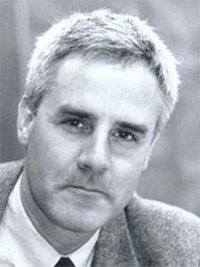 |
Peter T. Coleman (USA) holds a Ph.D. in Social, Organizational Psychology from Columbia University; Professor of Psychology and Education at Columbia University with a joint-appointment at Teachers College and The Earth Institute and teaches courses in Conflict Resolution, Social Psychology, and Social Science Research; Director of the Morton Deutsch International Center for Cooperation and Conflict Resolution (MD-ICCCR) at Teachers College, Columbia University; Chair of Columbia University’s Advanced Consortium on Cooperation, Conflict, and Complexity (AC4); research affiliate of the International Center for Complexity and Conflict; The Warsaw School for Social Psychology in Warsaw, Poland. He currently conducts research on optimality of motivational dynamics in conflict, power asymmetries and conflict, intractable conflict, multicultural conflict, justice and conflict, environmental conflict, mediation dynamics, and sustainable peace. In 2003, he became the first recipient of the Early Career Award from the American Psychological Association, Division 48: Society for the Study of Peace, Conflict, and Violence. He edited: Handbook of Conflict Resolution: Theory and Practice (2000; 2006; 2014); The Five Percent: Finding Solutions to Seemingly Impossible Conflicts (2011); Conflict, Justice, and Interdependence: The Legacy of Morton Deutsch (2011); Psychological Components of Sustainable Peace (2012); Attracted to Conflict: Dynamic Foundations of Destructive Social Relations (2013); Making Conflict Work: Harnessing the Power of Disagreement (2014). He has authored over 70 journal articles and chapters, is a member of the United Nation Mediation Support Unit’s Academic Advisory Council, a founding board member of the Leymah Gbowee Peace Foundation USA, and a New York State certified mediator and experienced consultant.
Address: Prof. Dr. Peter T. Coleman, Director, Morton Deutsch International Center for Cooperation and Conflict Resolution;
Professor of Psychology and Education. Program in Social-Organizational Psychology,
Department of Organization and Leadership, Teachers College, Columbia University,
Box 53, 525 West 120th Street, New York, NY 10027, USA.
Website: <http://icccr.tc.columbia.edu/> and <http://www.makingconflictwork.com/>. |
|
| |
Selected Books by Morton Deutsch
A comprehensive bibliography of Morton Deutsch’s publications is here.
|
| |
M. Jahoda, M. Deutsch, S. W. Cook,
Research Methods in Social Relations
(New York, NY: Holt & Dryden, 1951). |
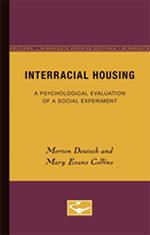 |
Morton Deutsch, M. E. Collins:
Interracial Housing:
A Psychological Evaluation of a Social Experiment.
(Minneapolis, MN: University of Minnesota Press, 1951). |
| |
|
| |
Q. Wright, W. M. Evan, M. Deutsch:
Preventing World War III:
Some Proposals
(New York, NY: Simon and Schuster, 1962). |
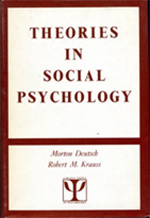 |
M. Deutsch, M., R. M. Krauss:
Theories in Social Psychology
(New York, NY: Basic Books, 1965). |
| |
|
|
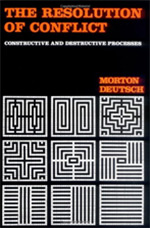 |
M. Deutsch:
The Resolution of Conflict:
Constructive and Destructive Processes
(New Haven, CT: Yale University Press, 1973). |
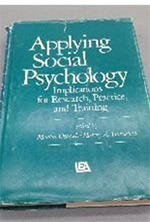 |
M. Deutsch, H. Hornstein (Eds.):
Applying Social Psychology:
Implications for Research, Practice and Training
(Hillsdale, NJ: L. Erlbaum Associates, 1975). |
| |
|
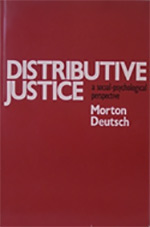 |
M. Deutsch:
Distributive Justice:
A Social Psychological Perspective
(New Haven, CT: Yale University Press, 1985). |
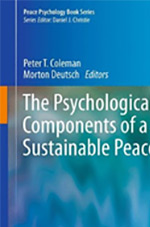 |
M. Deutsch, P.T. Coleman (Eds.):
Psychological Components of Sustainable Peace
(New York, NY: Springer, 2012).. |
| |
|
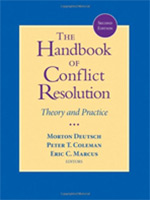 |
M. Deutsch, P.T. Coleman, E. C. Marcus (Eds.):
The Handbook of Conflict Resolution: Theory and Practice (2nd ed.)
(San Francisco, CA: Jossey-Bass, 2006). |
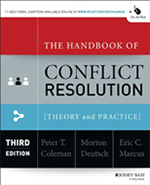 |
M. Deutsch, P.T. Coleman, E. C. Marcus (Eds.):
The handbook of conflict resolution:
Theory and practice
(San Francisco: Jossey-Bass, 2014). |
| |
|
Translations into other languages |
| |
Morton Deutsch, Robert M. Krauss,
translated by Bruna Zani Gemelli.
Deutsch Tendenze della psicologia sociale contemporanea.
(Italian) 15 Jan 1965 |
|
Morton Deutsch, Robert M., Krauss:
Les Theories En Psychologie Sociale
(L'Oeuvre Sociologique)
(Jan 1972 . |
| ( |
|
| |
Morton Deutsch, Robert M. Krauss:
Theorien der Sozialpsychologie
(Frankfurt am Main: Fachbuchhandlung
für Psychologie, 1976). |
|
Morton Deutsch:
Konfliktregelung
(München, Basel : E. Reinhardt, 1976), |
| |
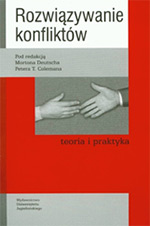 |
Peter T. Coleman. Morton Deutsch:
Rozwiazywanie konfliktow Teoria i praktyka
(Jan 2005). |
|
| |
| |
|
Books on Morton Deutsch |
|
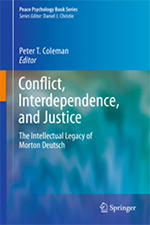 |
Peter T. Coleman (Ed.):
Conflict, Interdependence, and Justice:
The Intellectual Legacy of Morton Deutsch
(New York: Springer; 2011). |
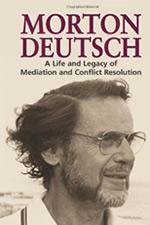 |
E. Frydenburg, E: Morton Deutsch:
A Life and Legacy of Mediation and Conflict Resolution
(Brisbane, Queensland: Australian Academic Press, 2005). |
| |
|
|
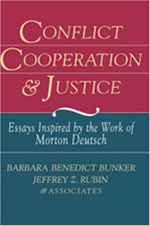 |
B.B. Bunker, J. Z. Rubin (Eds.):
Conflict, Cooperation, and Justice:
Essays Inspired by the Work of Morton Deutsch
(San Francisco, CA: Jossey-Bass, 1995). |
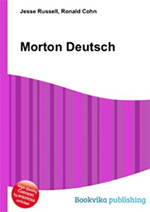 |
Ronald Cohn Jesse Russell:
Morton Deutsch
(VSD, 2013). |
| |
|
|
| |
Journal articles on Morton Deutsch |
|
| |
M. D. Roe, M. G. Wessells, McKay, S. A.:
"Pioneers in U.S. peace psychology: Morton Deutsch"
in: Peace and Conflict: Journal of Peace Psychology,
12,4 (2006): 309-324. |
|
J.T. Jost:
"Profiles in Social Justice Research—
Morton Deutsch"
in: Social Justice Research,
19,1, (2006): 1-5) |
| |
|
|
| |
|
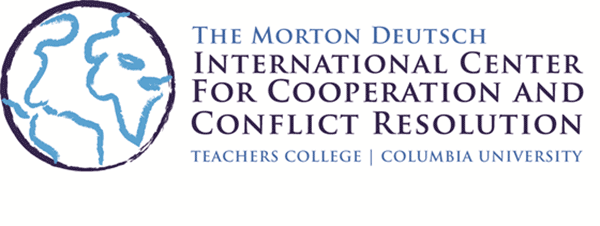
The ICCCR was founded at Teachers College, Columbia University, in 1986 under the direction of Professor Emeritus Morton Deutsch, Ph.D., one of the world’s most respected scholars of conflict resolution. Professor Deutsch, an eminent social psychologist, has been widely honored for his scientific contributions involving research on cooperation and competition, social justice, group dynamics, and conflict resolution. He has published extensively and is well known for his pioneering studies in intergroup relations, social conformity, and the social psychology of justice. His books include: Interracial Housing (1951); Theories in Social Psychology (1965); The Resolution of Conflict (1973); Distributive Justice (1985); and The Handbook of Conflict Resolution: Theory and Practice (2000).
The Morton Deutsch International Center for Cooperation and Conflict Resolution (MD-ICCCR) is an innovative center committed to developing knowledge and practice to promote constructive conflict resolution, effective cooperation, and social justice. We partner with individuals, groups, organizations, and communities to create tools and environments through which conflicts can be resolved constructively and just and peaceful relationships can thrive. We work with sensitivity to cultural differences and emphasize the links between theory, research, and practice. While many conflict resolution centers provide training and consulting, our practice is rooted in our own original, leading-edge scholarship.
Theory and Research
-
Building on the theoretical legacies of Kurt Lewin and Morton Deutsch, we conduct basic and applied research on theory related to conflict, justice, cooperation, and systemic change.
-
We work to bridge the gap between theory and practice in these areas.
Education
-
We educate future leaders who will further the development of theory and practice in the interrelated areas of conflict resolution, cooperation, and social justice with the ultimate goal of understanding and supporting sustainable peace.
-
We seek to increase public awareness of constructive methods for conflict prevention and resolution, of the many forms of oppression, and of strategies for overcoming social injustice in families, organizations, and communities worldwide and for fostering sustainable peace.
Practice
-
We work with educational, non-profit, corporate, and governmental organizations to provide culturally sensitive and locally relevant services related to conflict, violence, justice, cooperation, and social change.
-
We seek to broaden and enhance our international collaborative network.
Research Overview
Decades of research at the MD-ICCCR has addressed the question: What determines whether conflicts move in a constructive or destructive direction? While the answers to such questions are complex, we seek to identify the most fundamental factors that lead to qualitative differences in the dynamics of conflict and peace. Our research employs multiple disciplines, paradigms and methods to investigate the problems and opportunities of conflict in our world with the aim of fostering innovative practice and education.
This research has spawned new insights and new research questions, including:
-
Are there optimal ratios of different motives that lead to constructive conflict?
-
What determines fundamental differences in mediation strategies and the constructiveness of mediation?
-
How do power differences between disputants affect conflicts and how can they be resolved constructively?
-
How do cultural differences between disputants affect conflicts and how can they be resolved constructively?
-
What determines whether conflicts over injustice and oppression move in a constructive or destructive direction?
-
What are the fundamental dimensions of sustainable human development?
-
Why do some types of conflicts seem impossible to resolve and what can we do to manage or resolve them?
-
What determines the sustainability of peace?
Building on the foundational scholarship of Kurt Lewin and Morton Deutsch, the Center believes in the power of ideas to improve our world, and in the critical role leading-edge science plays in advancing and refining those ideas. Its approach is to develop conceptual models that address gaps in existing theory and research, often through eliciting insights from informed participants (local stakeholders and practitioners), and then to empirically test and develop the models using a variety of methods. Its scholarship bridges the theory-practice gap in our field by bringing new insights from research to bear on important technical and social problems, and by honoring practical expertise in the development of new theory. Work on such complex problems requires to integrate theory and research from a variety of different disciplines, to employ multiple methods such as case studies, surveys, lab experiments and computer modeling, and to work in multidisciplinary teams. The Center links its research to contemporary social problems, and communicate its findings to both scholarly audiences and the general public.
Education Overview
Situated at Teachers College, a top-ranked graduate school of education, the ICCCR is recognized for educational excellence. The Center offers a wide range of courses for scholar-practitioners in the areas of cooperation, conflict resolution, dynamical systems, and social justice. It develops and provides state-of-the-art instruction, training, and professional development for students, practitioners, educators, and organizational leaders. It continues to generate additional opportunities for our external educational work with non-profit organizations, agencies, and communities nationally and internationally. The ICCCR is committed to building relationships with a variety of organizations to allow students to gain practical experience. It provides a bridge between the academic community and experienced practitioners as we support and encourage a reflective scholar-practitioner model.
Website:<http://icccr.tc.columbia.edu/>
|
|
|
|